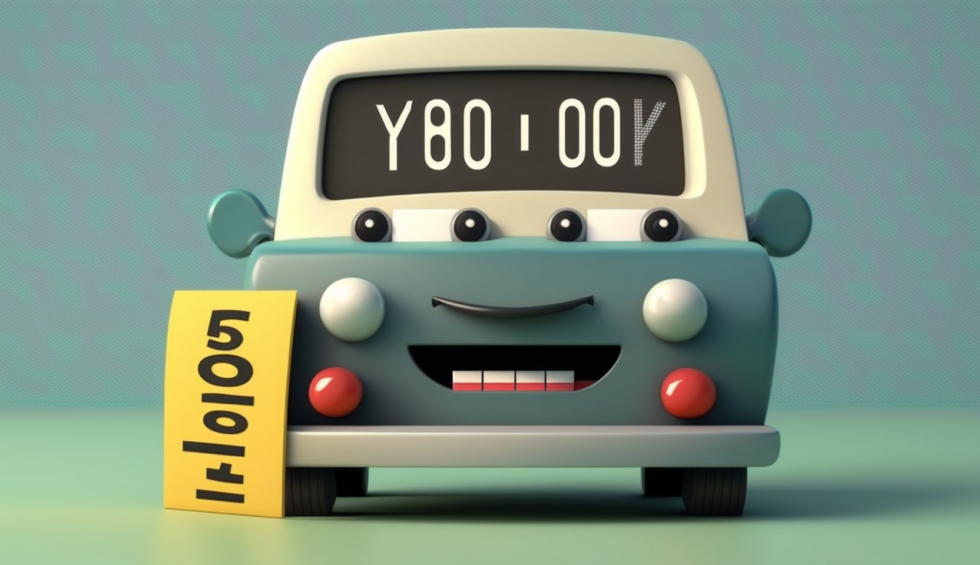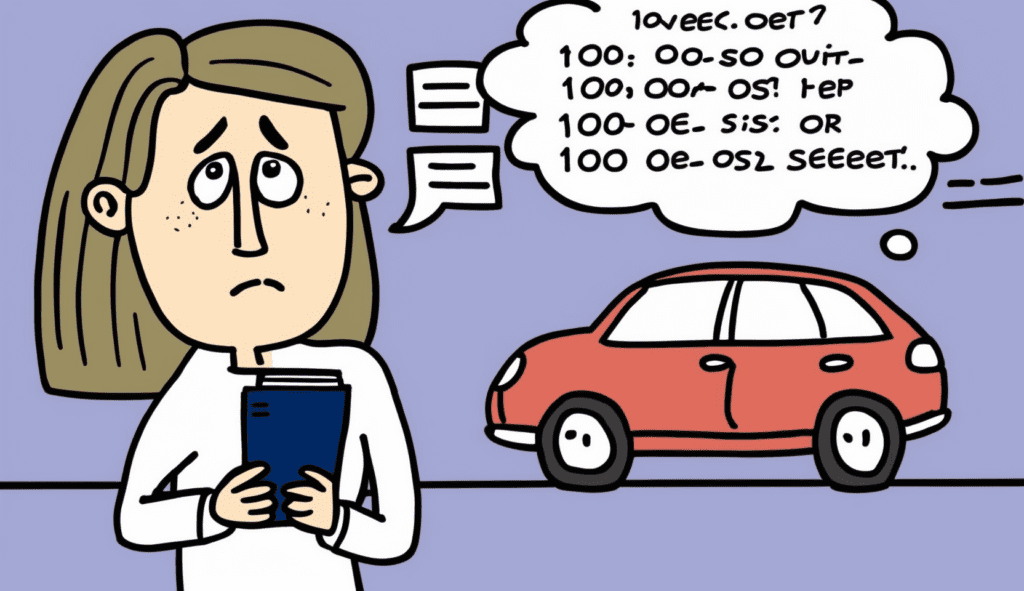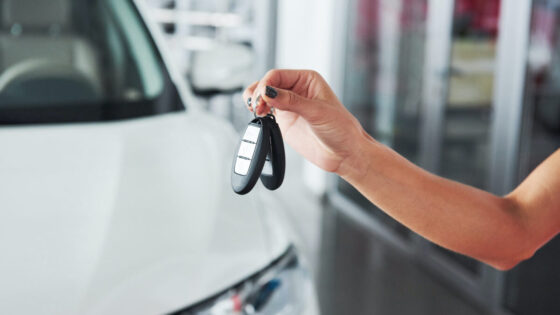What Credit Score Do You Need to Lease a Car?

If you’re thinking of leasing a car, one of the most important factors that you need to consider is your credit score. Your credit score is a numerical representation of your creditworthiness and can impact your ability to lease a car, as well as the terms and interest rates that you’ll receive. In this article, we’ll explore what credit score you need to lease a car, the factors that affect your credit score for car leasing, and the leasing options available for those with bad credit.
Factors Affecting Credit Score for Car Leasing
Before we dive into the minimum credit scores needed for car leasing, let’s take a look at the factors that affect your credit score:
- Payment history
Payment history is one of the most important factors that impact your credit score when it comes to leasing a car. This refers to whether or not you have made your payments on time in the past. Late payments, missed payments, or defaulting on loans can significantly lower your credit score and make it harder for you to qualify for a lease or secure favorable lease terms. Lenders and leasing companies look for a consistent payment history, as it demonstrates that you are responsible with your finances and able to meet your financial obligations.
If you have a history of late payments or missed payments, it’s important to take steps to improve your payment history before applying for a car lease. This might include creating a budget to help you better manage your finances, setting up automatic payments to ensure timely payments, or working with a credit counselor to address any underlying financial issues. By improving your payment history, you can increase your chances of being approved for a car lease and potentially securing better lease terms.
- Credit Utilization
Credit utilization is another important factor that affects your credit score when it comes to leasing a car. It refers to the amount of credit you are currently using compared to the total credit available to you.
Ideally, you should aim to keep your credit utilization ratio below 30%. For example, if you have a credit limit of $10,000, you should try to keep your balance below $3,000. Higher credit utilization ratios can negatively impact your credit score and make it more difficult to lease a car.
Creditors and leasing companies prefer borrowers who have a low credit utilization ratio as it demonstrates responsible credit management. If you have a high credit utilization ratio, it could indicate that you are relying too heavily on credit and are at a higher risk of defaulting on your payments.
It’s important to regularly monitor your credit utilization and make efforts to keep it low. You can do this by paying off your balances in full each month, requesting a credit limit increase, or opening new credit accounts to increase your total available credit. However, it’s important to use credit responsibly and avoid taking on too much debt.
- Length of credit history
The length of your credit history is another important factor that can affect your credit score when leasing a car. Generally, the longer your credit history, the better it is for your score. This is because lenders want to see a track record of responsible credit use over a period of time.
If you’re new to credit, it can be difficult to establish a long credit history. In this case, it may be helpful to become an authorized user on someone else’s credit card or to take out a small loan that you can easily pay back.
On the other hand, if you have a long credit history but have made some mistakes in the past, such as late payments or defaults, these negative marks can lower your score and make it more difficult to lease a car. However, the impact of these negative marks on your score will decrease over time, so it’s important to continue making on-time payments and practicing good credit habits.
In general, a longer credit history is better for leasing a car, but it’s not the only factor that lenders will consider when evaluating your creditworthiness. It’s important to maintain a good credit utilization rate, make on-time payments, and avoid applying for too much new credit if you want to increase your chances of being approved for a car lease.
- Credit Mix
Credit mix is another factor that influences your credit score. It pertains to the variety of credit accounts that you have, including revolving credit (such as credit cards) and installment credit (such as car loans or student loans). Having a mix of credit accounts can show lenders that you are capable of managing different types of credit responsibly.
For example, having only credit card debt may indicate to lenders that you rely heavily on borrowing, while having a car loan and a credit card may show that you can manage both types of credit simultaneously. However, having too many credit accounts or opening new ones frequently can negatively impact your credit score.
In general, it’s best to maintain a healthy mix of credit accounts over time, rather than opening multiple accounts at once. This shows lenders that you can manage your credit responsibly and are not over-relying on one type of credit.
- Minimum Credit Score for Car Leasing
Now that we understand the factors affecting your credit score, let’s explore the minimum credit scores needed for car leasing. Keep in mind that these minimum credit scores are not set in stone and can vary depending on the leasing company and the specific lease terms.
- Chase.com: 620 or higher for the best chance of approval.
- Capital One: Typically 660 or higher, but can vary depending on the leasing company.
- Car and Driver: 700 or higher for prime rates and the best terms.
- NerdWallet: 680 or higher for competitive rates and the best terms.
- Kings Toyota: 650 or higher for approval.
- Credit Strong: 550 or higher with a co-signer.
- Experian: 700 or higher for the best rates.
- Performance Toyota Store: 650 or higher for approval.
- Finn: 620 or higher for the best chance of approval.
- CUSO Cal: 700 or higher for prime rates and the best terms.
- Round Rock Nissan: 580 or higher for approval.
- The Balance: 620 or higher for reasonable rates.
- Moneyshake: Varies by lender, but typically 600 or higher.
If you’re interested in learning more about how to improve your credit score, you can check out this tweet by CJ Johnson, a credit expert, who shares some valuable tips and tricks link
Pros and cons of leasing a car with bad credit
Leasing a car with bad credit has its pros and cons. Let’s take a closer look at them.
| Pros | Cons |
| Lower monthly payments | Limited car options |
| Newer and more reliable car | Costly lease-end charges |
| Lower repair and maintenance costs | No ownership or equity |
| Opportunity to improve credit score with timely payments | Higher interest rates and fees |
| No need for a large down payment | Mileage restrictions |
| Possibility of upgrading to a newer model at the end of the lease term | Fees for excessive wear and tear |
| Flexible lease terms and options | Limited customization options |
Pros:
- Lower monthly payments: One of the primary benefits of leasing a car with bad credit is that you’ll likely have lower monthly payments compared to buying a car. Since you’re essentially renting the car, you’ll only be paying for the depreciation that occurs during your lease term, rather than the full purchase price of the car.
- Lower sales tax: In many states, you’ll only pay sales tax on the monthly lease payment rather than the entire value of the vehicle.
- Newer car: Leasing a car allows you to drive a newer car with the latest features and technology without the commitment of ownership.
Cons:
- Limited car options: With bad credit, you may not qualify for certain car models or brands, and you may be limited to older or less desirable vehicles.
- Costly lease-end charges: When your lease term ends, you may be charged for excess wear and tear, mileage overages, and other fees that can add up quickly.
- No ownership or equity: When you lease a car, you don’t own it, and you won’t build equity in it over time. At the end of the lease term, you’ll need to return the car to the dealership and start the process all over again.
If you’re still unsure about what credit score you need to lease a car, you can do some research on online forums like Reddit. For example, this thread on r/Crosstrek discusses whether visiting multiple car dealerships affects your credit score, which can be useful information to keep in mind during your car leasing journey link.
Leasing options for bad credit

If you have bad credit, it can be challenging to lease a car. However, there are a few options you can explore:
- MarketWatch suggests looking for subprime lenders or lease-to-own programs. These options may have higher interest rates and fees, but they can provide you with the opportunity to lease a car despite your poor credit.
- Bankrate recommends considering a higher down payment, finding a co-signer, or looking into a lease takeover. A lease takeover allows you to take over someone else’s lease, and the credit requirements may be less strict than starting a new lease from scratch.
- Credit Repair advises considering buying instead of leasing. While buying a car may require a larger down payment and higher monthly payments, you’ll own the car outright, and you can build equity in it over time.
FAQ
It can be challenging to lease a car with no credit, but it’s not impossible. You may need to find a co-signer, put down a larger down payment, or explore lease takeover options.
The minimum credit score required to lease a car varies by lender and dealership. Some require a score of 620 or higher, while others may require a score of 700 or higher for the best rates.
Yes, you can negotiate the terms of a car lease. You can negotiate the monthly payment, down payment, mileage limit, and lease term length.
At the end of a car lease, you’ll need to return the car to the dealership. You may be charged for excess wear and tear, mileage overages, and other fees. You can also choose to purchase the car or lease a new one.
Of course! Feel free to read our other articles link


